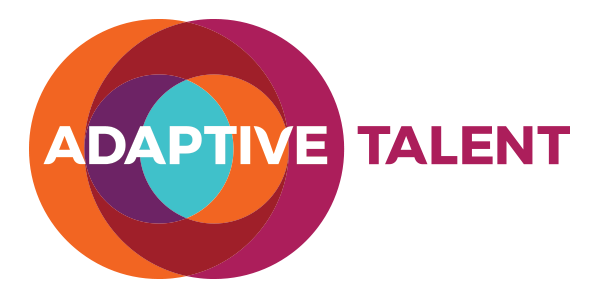One of life’s great joys is being creative; having that “ah ha” moment where the idea flows out of you, amping up your energy and the possibilities for action. Being around people who are comfortable with their creative energy is incredibly satisfying – for me, at least – because I end up feeling safer and more connected to my own creativity. In fact, my most satisfying work experiences have all centered around those break through moments when my colleagues and I have had mental jam sessions to produce something new, more applicable or fun.
Everyone and all organizations benefit from creatively approaching life and work, in no small part because of the shrinking cycle times of product releases, falling barriers to entry, more global competitors, giant leaps in technological capacity, and notable drops in costs. What’s left to differentiate organizations is their ability to learn lessons faster, to understand what currently matters most to their customers, to solve their unsolvable problems for them, and to collaborate in ways that connects fields of study, approaches, histories, and perspectives to produce new ways of approaching insights. In other words, to adapt.
Why would individuals benefit from deepening their creativity? Creativity viewed from the lens of skill development means the repeatable ability of a person to reframe something, or to connect disparate ideas, so that individuals can break out of patterns or habits that no longer serve them. It’s also an attitude because being comfortable enough to be creative about an issue or opportunity means trusting yourself to dream, of positively viewing life’s changes as opportunities versus yet another exhausting demand for change. In other words, connecting to your creative self is one of many powerful tools for creating resilience and happiness in your life. Given the rapid pace of today’s world, and the increasing demands for deep expertise and flexibility of knowledge workers, this is not only a must for career relevance but happiness overall.
As I’ve coached senior leaders throughout my career, I’ve noticed how challenging it is to nurture creativity given production demands. People are busy producing so many leaders – logically – protect their people by allowing them to focus on completing the project. What do people do when there’s downtime? Sleep; go on vacation; prototyping; maybe some customer visits. But pretty quickly thereafter it’s back to production.
There is very compelling research on positive psychology and neuroscience that shows the power of understanding how the physical nature of our brains affects our thoughts which in turn affect feelings which of course largely drive our actions. Mediation is a powerful tool for creativity in no small part because it honors a particular type of creative problem solving called insights where seemingly disparate pieces of information are connected to produce new insights. Another type is called “feelings of knowing” where something is at the proverbial tip of your tongue and the best approach is to simply keep plugging away at it. Check out this Wall Street Journal video for a highlight, or the article itself for more detail.
Leaders would do well to take a step back and assess how their organization frames creativity, as well as how they connect with, and demonstrate, their own creativity. Are leaders actively educating people on the emerging research of creativity, and how do the core processes of production allocate time for research, cross fertilization from other disciplines, or other approaches where teams are actively “hacking” the current product, or even the current product category, to think about entirely new ways to solve customer problems (great stuff on the customer discovery approach from people like Steve Blank and Eric Ries)? The gravity of production can be very strong, so actively creating time for people to explore and recharge, or championing and celebrating discoveries / hacks / eliminating things which no longer add value, etc. are all ways leaders can open up creativity in their organization.
If this is something you’d like to explore further, at an individual level through coaching, or organizational level through consulting, please let me know. Having an external resource can lend a fresh set of eyes and source of encouragement to something that everyone needs and in fact will find very satisfying.
Photo credit Sharon Mccutcheon
—
Adaptive Talent is a talent consultancy designed to help organizations achieve amazing results and ongoing adaptability. Founded in 2008 and based in Vancouver, Canada we offer retained search, assessments, total rewards consulting, training, leadership coaching and development programs, and culture & organizational development consulting.

